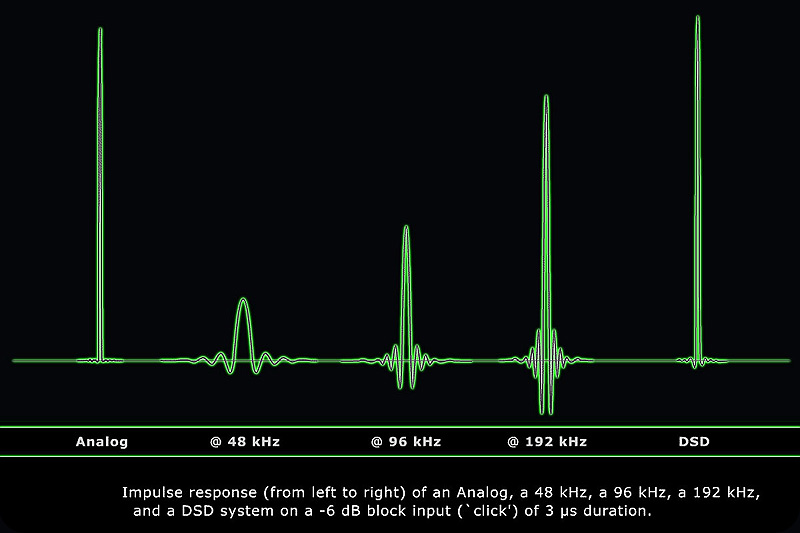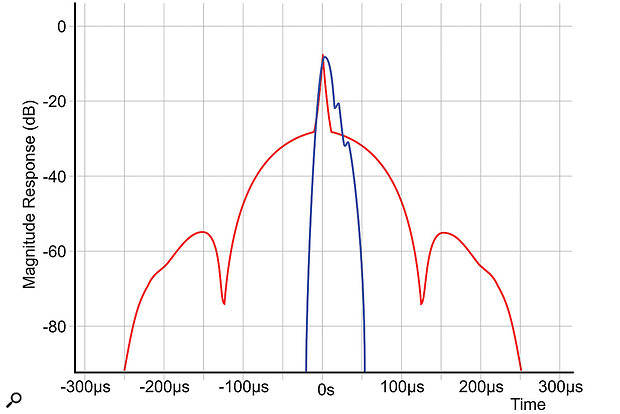Thats fairly conclusive, but, advertising and personal views can be kept seperate through professionalism, though some here may well scoff at that.
The fact is, he is highly entertaining, though I dont subscribe to all his findings/musings, thoughts etc, least of all his enthusiasm for MQA.
I’d agree if he used a service like AdSense, where the host doesn’t know what ads are served. In this case, he is selling space to the hi-fi industry …
Does that dismiss him completely as an objective source?
If you think he is influenced by his advertising, then yes.
This again parks itself in personal choice. As I said, im open to his views as I am with anyone, whether I believe them is another matter
So what is not disqualified? I can go to any blog, vlog, forum or YouTube channel and find a dependency on advertising. Even if you use a system like Adsense, your conduct impacts on revenue. On a forum I was on they were excluded from Google’s ad service because they didn’t like the bad language used in some sections of the forum. In short they reserved the right to censor content.
That’s the approach I take … with some journalists you need to take their advice and recommendations with a pinch of salt.
And he has catagoricaly stated in his show that he is not sponsored by manufactures and if he was lucky enough to be (Financially) he would still be objective an inform the situation
By the way, DSD can achieve the analog ‘click’ (impulse response) in just 3us duration, far better than anyone else. And you can get this when SACD is launched 1999! The issue of impulse response in PCM is virtually solved by DSD technology long before MQA came into the scenario.

MQA impulse response only shows the tip of response curve but not the overall rise and settling time right down to bottom of the reference line. To me the diagram can be very misleading indeed (There’s should be some post ringing when using minimum phase filter). It is something MQA is hiding and not showing the overall picture?

These are low end DACs meant for small portable applications and I’ve not come across manufacturers that actually use this yet. I don’t see it in ESS high-end DACs nor other DAC manufacturers. Putting MQA renderer filters means DAC chip manufacturers have to pay a licence fee to MQA thus increase the overall cost of the chip.
Of course they pay a license as for anything.
Not necessary, most DACs design are quite generic and manufacturers use their special techniques to achieve lower noise and better performance. I don’t see they need to pay license fee.
Intellectual property is a thing. You will pay it for any codec that is not open source.
DAC chip only process raw PCM and convert it to analog signals. Codecs are done separately by a hardware/software processor. It has nothing to do with DAC chip.
Licensing fees are part and parcel of life. SACD, CD, DVD, VHS etc. In modern audio video life they have been there for many years. Importantly it is revenue that helped keep the industry viable.
Notice the width of the blue peak is wider than original red peak. This represents a loss of resolution by MQA. The narrow blue “skirt” is due to apodizing which is a suppression of ringing at the expense of resolution. That the original red curve has a wider skirt is irrelevant as this is just ringing at inaudible frequencies. The important thing is that the original red curve properly conserves the transient whilst MQA does not.
Like everything promulgated by MQA, it is all deliberately misleading.
Maybe this is an indicator of MQA being positioned for the consumer market in the same way we saw the Hi-Res Audio logo appearing on all sorts of consumer goods a couple of years ago, e.g. headphones and cables for handsets, TVs, soundbars etc. Fads and fashions.
There is a psychological reason to play them louder. Trials have shown that in AB tests, for some reason, people prefer the louder selection. And since 3dB is the amount needed for most people to readily perceive it as being louder, 3dB, to me anyway, makes total sense. And, INHO, MQA needs all the help it can get. (If anyone disagrees, good and fine. You listen with your ears, I listen with mine. I’m totally fine if yours hear differently than mine)
Way less than 3dB is required.
I’m 68, and although some areas of my hearing has diminished (such as hearing very high frequencies), and in some areas, such as hearing distortion, attack, delay and ambience, I hear better. Maybe that is why I much prefer non-MQA, but for whatever reason, that is the way MY ears hear it, and to me, that is all that counts. For those who prefer MQA, GREAT! Enjoy it, and I hope no one tries to tell you you are wrong. Besides what I hear, I have another beef with MQA, the “Authenticated” label. MQA proves nothing about being authentic. Although I am sure the bulk of them might be, how do we know? It would be easy, and probably undetectable to pass an album off as AUTHENTIC. In antiques, it’s called “Certificate of Authenticity”. And there are tons of bogus certificates. People lie, so do companies, for the same reason - they are greedy for your money. Obviously, I am not in a position to say it IS happening with MQA, but I am saying buyer beware.